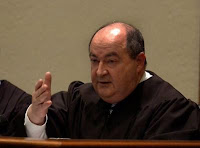In the case of Borden v. Mainline Conveyor Systems, Inc., No. 4:23-CV-01486 (M.D. Pa. July 21, 2025 Mehalchick, J.), the court addressed Motions In Limine filed by a Plaintiff in a products liability case that sought, in part, to preclude certain testimony by a defense engineering expert.
According to the Opinion, the Plaintiff was working for a container company when he stepped on a mesh belt conveyor that activated and threw him off, resulting in injuries.
The Plaintiff sued the conveyor belt manufacturer, claiming that the company was strictly liable for manufacturing a defective and unreasonably dangerous device.
The court otherwise rejected the Plaintiff’s Motion In Limine to preclude the defense from pursuing an assumption of risk defense.
The court otherwise rejected the Plaintiff’s Motion In Limine to preclude the defense from pursuing an assumption of risk defense.
Here, the court found that there were issues of fact regarding whether or not the Plaintiff was required by his employer to walk over the conveyor belt and whether the Plaintiff was aware of the risk that the conveyor belt would be inadvertently activated. Given these issues of fact, the defense was permitted to proceed with its assumption of the risk defense.
In her Opinion, Judge Mehalchick limited the Defendant’s liability expert’s opinion and ruled that the defense expert would not be permitted to testify regarding the import of a contract between certain parties relative to the machine at issue, in terms of which company was responsible for certain actions. The court found that such testimony would be impermissible interpretation of a contract by the expert rather than the offering of an opinion on customs and practices within the conveyor manufacturing industry.
Anyone wishing to review a copy of this decision may click this LINK.
Source: Article: “Engineering Expert’s Testimony Improperly Waded Into Contract, Pa. Fed. Judge Rules In Products Liability Dispute,” By Riley Brennan of the Legal Intelligencer (July 21, 2025).
In her Opinion, Judge Mehalchick limited the Defendant’s liability expert’s opinion and ruled that the defense expert would not be permitted to testify regarding the import of a contract between certain parties relative to the machine at issue, in terms of which company was responsible for certain actions. The court found that such testimony would be impermissible interpretation of a contract by the expert rather than the offering of an opinion on customs and practices within the conveyor manufacturing industry.
Anyone wishing to review a copy of this decision may click this LINK.
Source: Article: “Engineering Expert’s Testimony Improperly Waded Into Contract, Pa. Fed. Judge Rules In Products Liability Dispute,” By Riley Brennan of the Legal Intelligencer (July 21, 2025).

























